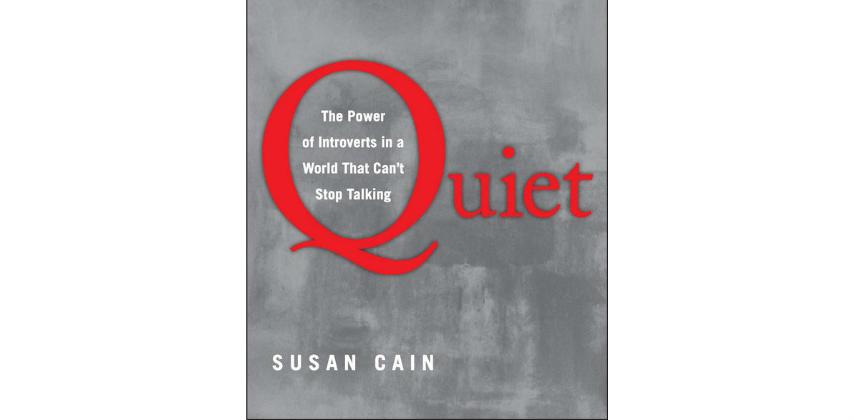One book praises the role of the introvert in a world that lauds extrovert behaviour
Apple co-founder Steve Wozniak is one. So are Hong Kong’s Nobel-prizewinning Charles Kao, McDull creator Alice Mak and author JK Rowling. So, too, are many late greats such as composer Frédéric Chopin, Charlie Brown cartoonist Charles Shulz, and Dr Seuss, to name just a few.
They, and at least one-third of the general population, are introverts, according to a new book, Quiet: The Power of Introverts in a World That Can’t Stop Talking by Susan Cain, a former corporate lawyer from New York. Cain’s book champions the quality of introversion in an age when extroverts appear to hold all the cards.
Introverts take a little longer to get to know socially or in the workplace, but the extra effort is usually well rewarded. They are the quieter souls who prefer listening to speaking and who generally favour working on their own.
Cain explains that they are often underestimated and not perceived as team players, but their contribution to the group is vital. She shows how much organisations lose in not fully appreciating their worth, potential and added value.
To make her point, Cain employs some compelling “ordinary extraordinary person” case studies – such as the shy but record-breaking salesman and the successful public speaker who always recharges in intense solitude after leaving the stage.
As a self-proclaimed introvert, Cain conveys her messages with passionate and irrefutable logic, and from an introspective-yet-worldly point of view, which gives her prose a wonderful luminous quality.
Cain writes about “private occasions that make me feel connected to the joys and sorrows of the world, often in the form of communication with writers and musicians I’ll never meet in person”. But the writer is an introvert in a world that misguidedly and excessively rewards extroverts, who end up being our bosses and political leaders. Cain notes that before the industrial revolution, professional-development books extolled character. Nowadays it’s always personality. That’s plain wrong from all angles, including taking care of the bottom line, Cain argues.
Cain saves her sharpest words for our propensity to shape workplaces around the extrovert ideal. She paints nightmarish depictions of open-plan offices, where cynical group-think crushes the hard-working solo worker with grim inevitability.
In any event, the scenarios she constructs show how universal the cult of the extrovert has become. The shrillest and most socially confident prevail, whereas the introverted, yet quietly well-informed constituents, are routinely denied any input.
“Modern socio-linguistic programming, from kindergarten to the boardroom, is unfair to introverts, especially in Confucian-influenced cultures such as Hong Kong and Japan,” says Dr Maik Gorman, a former consultant at Tokyo’s Kanda Institute of Foreign Languages who is now a psychology teacher and writer.
In addition to showcasing some notable high-achieving introverts, Cain delves into the deep blue pond of introversion, using traditional and familiar psychological methodologies and new ideas. She highlights the role of brain chemistry, her own personal experiences and – the book’s salient message – the importance of introverts and extroverts understanding each other better.
“The bias against introversion leads to a colossal waste of talent, energy, and, ultimately, happiness,” Cain says. This lovely East Coast rose is a quiet genius, though I suspect that she would blush at such praise.
AN INWARD LOOK AT THE INTROVERT WORLD
If you want a greater insight into the following questions, Quiet could speak loudly to you…
1. If you believe that you’re an introvert, can you think of a time when it proved to be an advantage?
2. Do you believe that introverts can be good leaders?
3. If you’re an introvert, what do you find most challenging about working with extroverts?
4. If you’re an extrovert, what do you find most challenging about working with introverts?
5. Is there any balance between a “culture of character” and a “culture of personality” in your workplace?
6. Do you think your job suits your temperament? If not, what could you do to change things?
7. Do you enjoy social media such as Facebook and Twitter? Has this got something to do with your temperament?
8. What are your favourite “restorative niches” – the places you go to or the things you do to recharge your batteries?
9. Would you like to see the balance of power between extroverts and introverts shifted in your workplace?
10. At an office party, do you ever suddenly feel a pang of social anxiety and have the urge to escape somewhere quiet?


